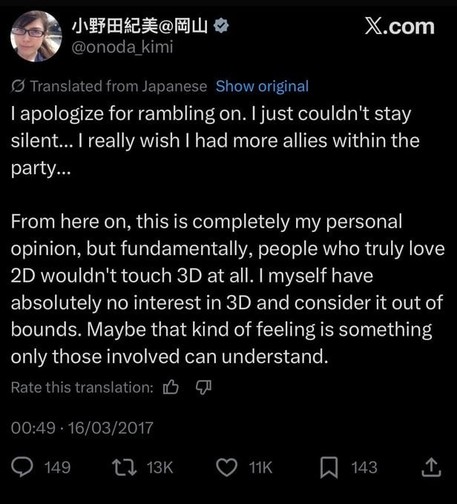2026-01-05 02:10:07
They have a great “big” point here about incrementalism but also: fiber, water, and even minimal activity specifically are great first steps towards feeling better.
I suspect that a lot of us 1st-worlders feel lousy in part because we’re each paving our own way to T2D, colon cancer, and heart disease. @…
2026-01-29 16:51:38
While I'm settling now at home and think about having a walk in the dark to prevent just falling asleep right now - I enjoy the memories from a recent hike.
As you can see at the frosty cross, it was a bit chill. -- Actually .. I'm quite undecicive whether I like summer or winter more? Summer is green and all, but in winter I like the chill and the cold ...
Maybe I don't have to prefer a season? Yes, I guess I just call myself lucky that I can enjoy every season.
2025-12-26 14:59:51
MEETING WITH TRUMP IN JUST DAYS! Russia in rage strikes Odesa and Mykolaiv: ports in flames!: https://benborges.xyz/2025/12/26/meeting-with-trump-in-just.html
2025-12-26 10:41:26
I don't think I'm ever going to enjoy gifts.
I can get why people would give them to children. After all, children don't have their own budget. However, I'm talking about occasional gifts, not a new toy every second week, because "we must outcompete the other grandparents". But to adults?
Once I've heard that you should gift people with what they won't buy themselves. Well, that's won't work for me. I'm a minimalist. If I don't need something, I don't want to have it. Unnecessary junk is only emotional burden to me.
I can get why you'd enjoy something handmade. But something people bought? If I need something, I can buy it myself, when I need it. And I definitely don't need people to prove to me that they never cared to learn who I am, and just buy whatever they like or whatever is "fashionable"; which usually means exactly the opposite of what I'd prefer (i.e. something minimalistic). Or even worse, I don't need people manipulating me through gifts.
Sweets? Besides my diabetes, I don't really enjoy expensive shit that people generally buy because it's what's advertised. For the money they waste on it, I'd buy three times as much sweets I'd actually enjoy.
Gift cards? Oh yes, "you aren't supposed to give money, so let's just give the equivalent of money that's actually worth less than money". Actual money? And here we reach the true nonsense; we exchange the same amount of money, so it's just pointless gesture. Unless one of us gives less money…
What I'd really like, as a gift? Maybe that people would finally bother accepting me as who I am. The absolute minimum of caring that I hate consumerism, and not fueling it "for me".
#AntiCapitalism #minimalism #ActuallyAutistic
2025-11-06 14:52:44
Lord help me I'm starting to enjoy coding in C .
I find myself saying "if you're writing *that* kind of C you've done something wrong at the design stage"
I caught myself feeling grateful that the language punishes you with unreadability and untestability when you do too much in one function
Is this... Stockholm Syndrome?
2025-12-10 14:39:26
2026-01-17 19:52:29
Selected a #hiking route for tomorrow.
Just reminded myself to check the avalanche status... Selected another route...
Maybe overcautios - but my route would go over a larger alpine meadow. Even though I'd go via a south flank that is mentioned with less risk - when I'm going alone, I prefer zero risk.




